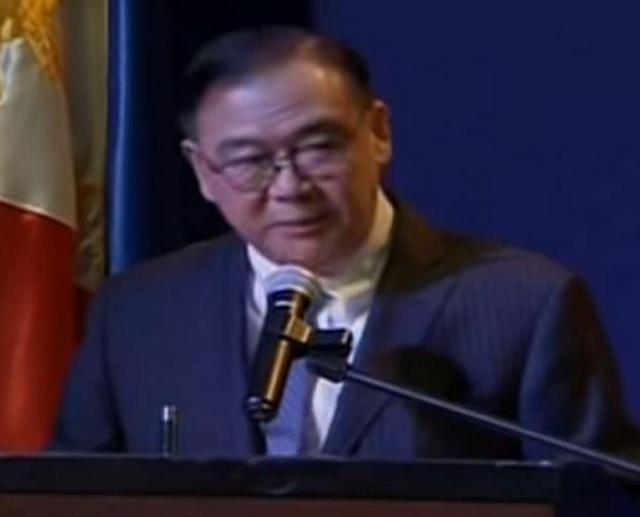Locsin calls for resumption of South China Sea code of conduct talks

Foreign Affairs Secretary Teodoro Locsin Jr. has called for the resumption of negotiations between Southeast Asian nations and China for a code of conduct in the disputed South China Sea which has been been hampered by the coronavirus pandemic.
Despite travel restrictions that precluded face-to-face meetings, Locsin called on the Association of Southeast Asian Nations and China to ensure that the process of talks on the code of conduct continues.
“It is imperative to bring everyone back to the negotiating table to demonstrate to the world that we are sincerely committed and determined to arrive at a conclusive result, one way or the other; but we must get down to sincere and serious work,” Locsin said at last week's virtual ASEAN ministerial meeting with Chinese Foreign Minister Wang Yi.
In August 2018, ASEAN and China agreed to a single draft of the code of conduct or COC, with an agreement reached in November 2018 for both sides to finalize the document within three years, starting from 2019.
With all the delays caused by the pandemic to regional meetings, China’s preferred three-year deadline to conclude the document, aimed at restraining hostile acts in the waters, seem to be growing difficult each month.
China's continuing harassment and aggressive actions against claimants and ASEAN members, such as Vietnam, Malaysia, and the Philippines, likewise undermined trust and are seen to heavily impact negotiations for the elusive code.
It also paves the way for the inclusion of effective rules to deal with misconduct and threat or use of force - a move likely to be rejected by China.
However, Locsin, who co-chaired the meeting with Wang, reiterated the Philippines’ commitment to push for talks to achieve an effective and substantive code as he highlighted the completion of the first reading of the Single Draft COC Negotiating Text (SDNT) and the commencement of the second reading last year.
“As a community of law-abiding nations, we emphasize that disputes should be resolved in a peaceful manner in accordance with international law, including the 1982 UNCLOS,” he said.
UNCLOS stands for United Nations Convention on the Law of the Sea.
The regional bloc's lack of consensus on the sea disputes has been a major challenge as each member's national interest and leanings towards China have constrained efforts at unity.
Some ASEAN members insist that the code of conduct must be legally-binding, which is vehemently opposed by China. Other ASEAN members, on the other hand, have openly supported Chinese preferences. It’s not clear how these conflicting views will affect progress of future efforts to negotiate the code.
The Philippines is the current coordinator of the ASEAN-China dialogue relations and is co-chairing with China on the negotiation of the COC. — RSJ, GMA News



